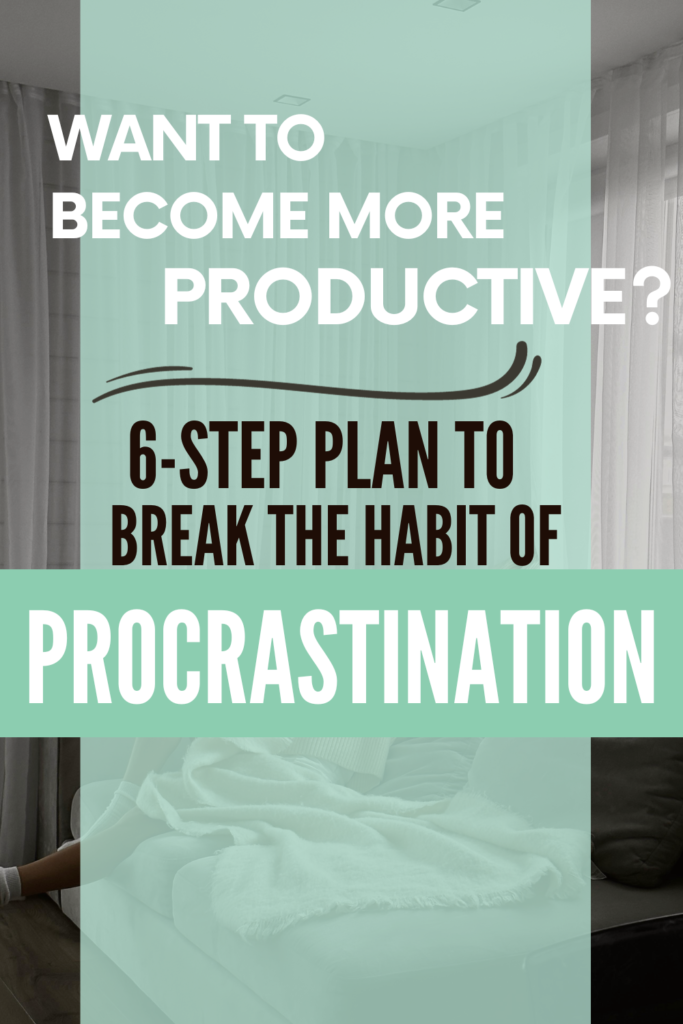Have you found yourself putting off that crucial work project, only to feel a pang of guilt and self-doubt? Rest assured, you’re not alone. Procrastination is a common challenge that touches nearly everyone, and it’s important to understand that it’s not a sign of laziness or a flaw within you.
This article delves into the essence of procrastination—what it truly is and how you can navigate through it. I hope after reading it you will not only feel better about yourself but also feel empowered to overcome this hurdle.

Understanding procrastination
In order to understand why people procrastinate we need to clearly understand what procrastination is.
Procrastination is a form of delay that we choose voluntarily. In other words, we are intentionally postponing doing something that holds significance to us.
So, given that we already set the intentions to take care of certain business and that the consequences of not doing it on time can be grave, why would we keep putting it off?
Why do we procrastinate?
The causes of human actions are far more complex and varied than our subsequent explanations of them. We often account laziness or poor time management skills for such delays, but this perspective doesn’t allow us to look at real causes, which usually have to do with our emotions and how we handle them.
When we think about procrastination in terms of managing our emotions, it’s not necessarily about avoiding the task itself; rather, it’s about steering clear of the negative emotions linked to that task. Procrastination becomes a coping mechanism for dealing with these negative moods and emotions, especially if you’re not experienced in handling them effectively.
If you’re facing a task that feels unpleasant, stressful, or overwhelming, and you’re short on inner resources to cope, procrastination offers quick relief. It’s like a temporary mood boost—you set aside the challenging task, focus on something else, and instantly feel better.
Imagine you're facing an important project, like a presentation you need to do. You're anxious about what your colleagues or others might think, and how you and your ideas will be received. The worry creeps in about doing it right or perfectly. The emotions get overwhelming. So, what do you do? You set that task aside, dive into other activities, and suddenly, you feel a wave of relief. Although you've fixed that negative mood, and things seem better, intrinsically you know the problem is not solved.
6-step plan to overcome procrastination
1. Become Aware
Acknowledging your struggle and recognizing the negative emotions linked to a task is the crucial first step. Awareness is key – understanding that procrastination is present and acknowledging the fears connected to the task at hand.
Pose questions to yourself: Why am I hesitant to begin? What lies beneath my decision to procrastinate? Try to comprehend the reasons behind your hesitation and confront them with curiosity.
This self-inquiry is essential and lays the groundwork for further actions.
2. Give Yourself Self-Compassion
Shift the tone of your self-talk from criticism to compassion. Treat yourself with the same kindness and understanding you would offer to a close friend facing a challenge.
Say, “Yes, I’m having a hard time with this task. It’s tough, but that’s okay. Others have faced similar challenges. My struggle is not unique. Instead of being harsh on myself or exacerbating the situation, I need to work through it with patience and self-compassion.”
Embracing a supportive inner dialogue can alleviate the burden of self-criticism and contribute to a more positive mindset.
3. Get Acquainted With Your Emotions
Embracing your emotions is a powerful practice. Negative emotions may seem intimidating, but if you let them be, just let them rise to the surface, you’ll realize they’re not as scary as they seem.
The next time you feel these emotions, instead of pushing them away and turning to distractions, take a moment to pause and allow yourself to feel them. Simply observe. There's no need to do anything else.
Consistently practicing this will make you more acquainted with this side of yourself. You’ll begin to see emotions for what they truly are—waves of energy accompanied by a flurry of thoughts that come and go, come and go.
4. Take Action Despite The Fear
Confront your fears and insecurities head-on and initiate the task. It’s crucial to acknowledge that everyone, including the strongest and most confident individuals, harbors insecurities and experiences fear. What distinguishes them is their willingness to move forward despite these apprehensions.
Understand that fear is a universal experience, and taking action despite it is a key component of growth and success. So, take that first step, and gradually, you’ll find yourself capable of doing that one thing you’ve been long procrastinating.
4. Better Something Than Nothing
Start with small, manageable steps. Convince yourself to begin by committing just 10 minutes to the task. Set modest expectations to ease the pressure.
For instance, if you’re facing an 8-page college paper, allocate a few minutes here and there to work on it. Witness how it gradually takes shape before your eyes. Break it down further by telling yourself that, within the next 20 minutes, you’ll create a quick outline for the paper.
This approach of setting smaller expectations is the secret to overcoming the mental resistance, a small mind trick so to speak.
6. Stop Seeing It As a Struggle
Instead of viewing the task you’ve been avoiding as a tiresome and challenging chore, find a way to make it enjoyable. Seek out the pleasant aspects of the process and discover how you can infuse a sense of fun into it. Play with different elements of the task, and let the creativity flow.
The key here is to relish the process itself, rather than fixating on the end result. Often, when we focus too much on the outcome, we fast-forward through life, missing the essence of our journey—to enjoy and experience it fully.





